This article builds upon information that has been published in three prior articles, which I strongly encourage you to read if you have not previously done so. I believe the information in these articles are all connected and I will explain my reasoning toward the end of this article.
Why the Newberg Urban Renewal Project Is a Terrible Idea
Newberg City Council Funds Construction of Homeless Camp Next to School
Rick Rogers Ties to Progressive Yamhill and Its Agenda
Just so we can all be abundantly clear on where Newberg Mayor Rick Rogers’ allegiances lay, I think the evidence is clear Rogers is aligned with Progressive Yamhill and their political agenda, even if he was not a member of their secret Facebook group I infilitrated in August of last year.
Last October I published information that I believe shows Rick Rogers is associated with the Progressive Yamhill group, and here is some additional information I also discovered.
At the June 7, 2021 City Council meeting Rick Rogers is recorded in the meeting notes as presenting a Gay Pride Month Proclamation to Kristen Stoller and McMinnville City Council member Remy Drabkin. Both are members of Progressive Yamhill.
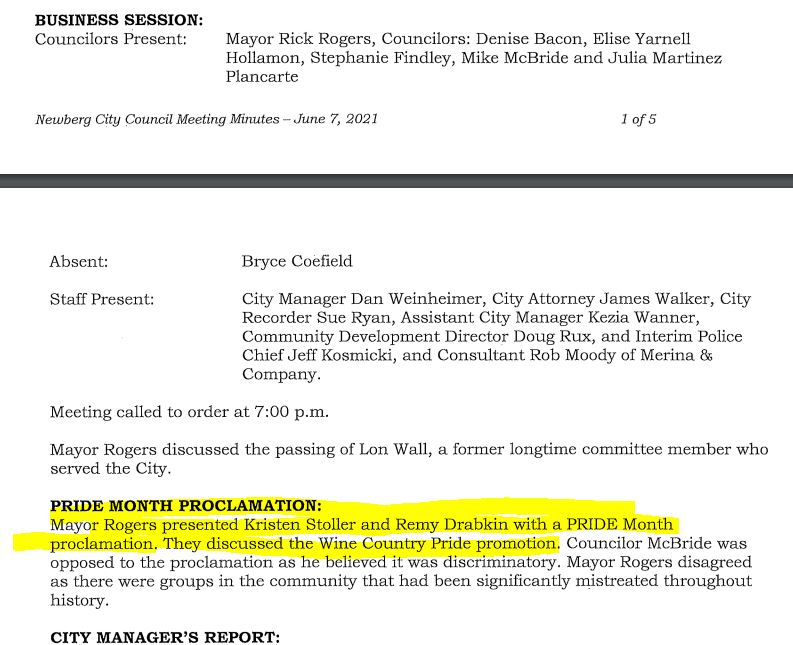
I have in the past published several investigative reports about Kristen Stoller which I believe show the kinds of social values Rick Rogers is aligned with through the people he associated with.
- Newberg Student Performs at Drag Queen Show at Officially Recognized School Program Dance Center
- Kristen Stoller Threatens to Sue Yamhill Advocate
- The Truth About the Newberg High School Wellness Center
- Kristen Stoller’s Attorney Attempted to Intimidate Me At Work, Threatens Lawsuit, Again
Newberg Affordable Housing Fund Program Details
This article is related to affordable housing programs operated by the City of Newberg.
For those unfamiliar with the affordable housing funding programs in Newberg, the Newberg Affordable Housing Trust Fund (NAHTF) can provide loans totaling up to $43,074 ($21,537 for the Competitive Loan Program, and $21,537 for either the Time Sensitive Loan Program and the Rehabilitation Loan Program combined).
The program is funded through a Construction Excise Tax (CET) that City Council passed in December 2020, which taxes new residential construction at $1 per square foot of new construction. This tax however does not apply to housing that is claimed to be “affordable”, such as that constructed by companies like Newberg Habitat for Humanity.
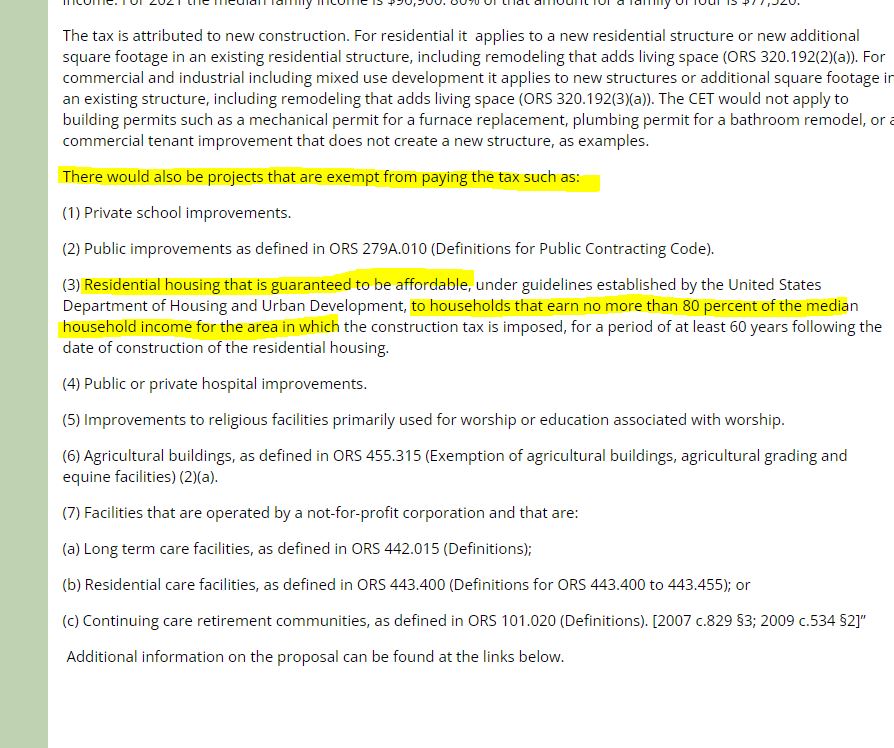
As you can see in the language used on the City website, the definition of “affordable” is extremely broad and applies to any household earning 80% or less of the “median household income for the area”. We’ll talk about this in more detail but you should know that per the Newberg Affordable Housing Trust Fund, I believe this number is grossly inflated to be significantly higher than what most reasonable people would consider “low income” to mean.
Per the language of the program,
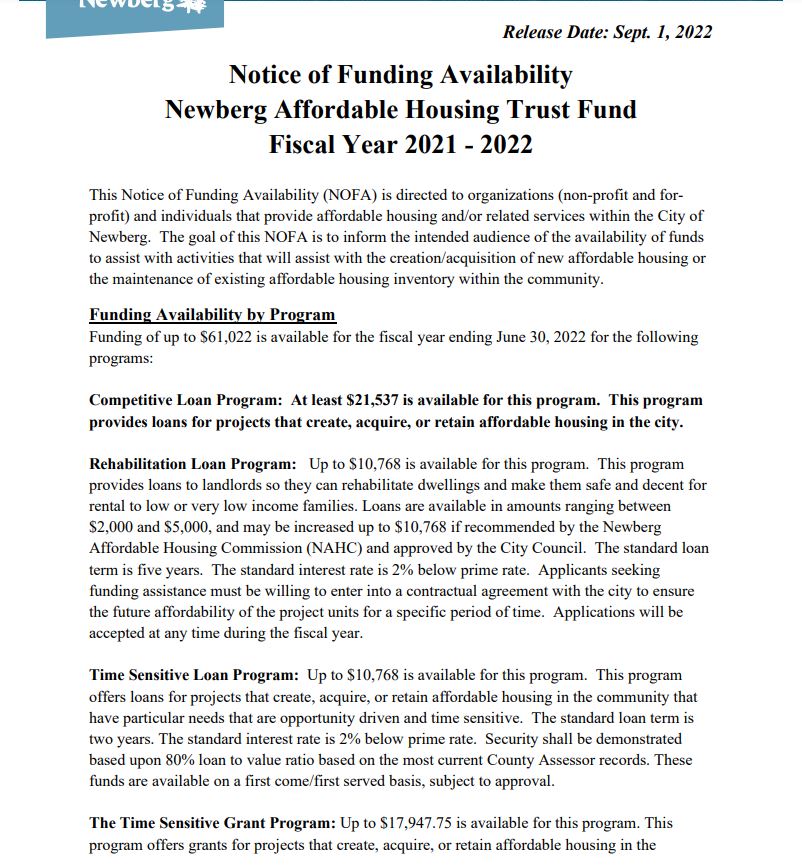
While the amounts don’t seem to be very significant on their own, they are intended to be supplements to other grants and loans a developer has obtained or intends to obtain.
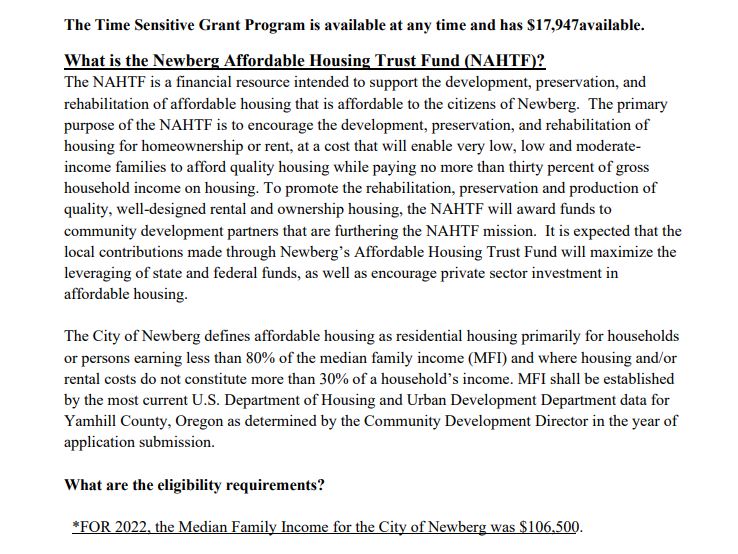
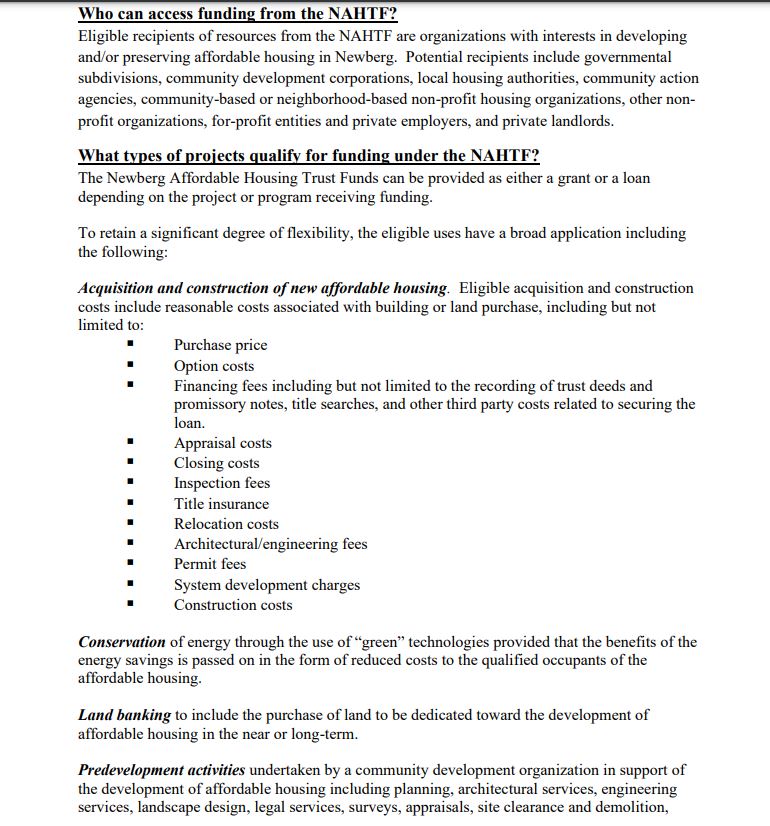
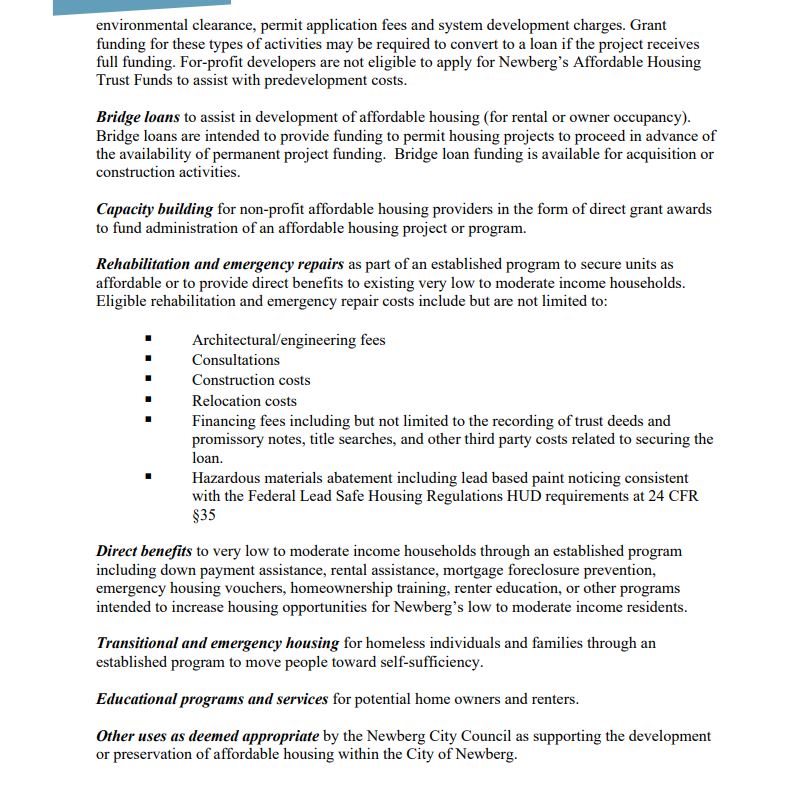
While the program sounds noble and humanitarian, a close review of the language of the plan paints a very different picture.
According to the proposal language changes for 2021-22, the values for the average median family income were significantly raised to be $106,500 a year.
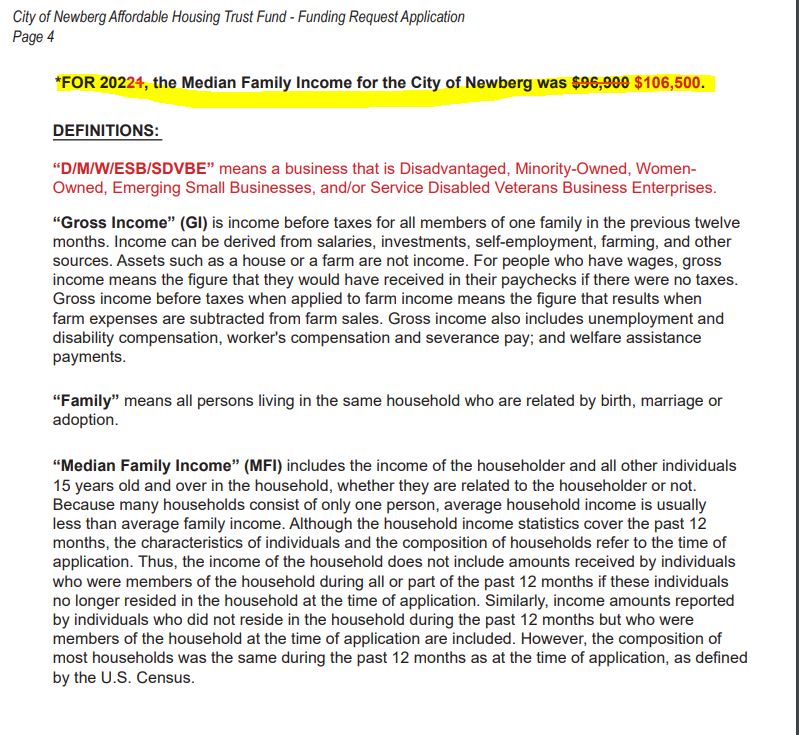
This increase matters significantly. The affordable housing trust fund application criteria for who qualifies as “low income” requires that households renting from a landlord and/or homes to be sold by a developer earn less than 30% of the median family income; that is to say, in order to qualify as “low income” one must earn less than 30% of whatever has been defined to be the median family income.
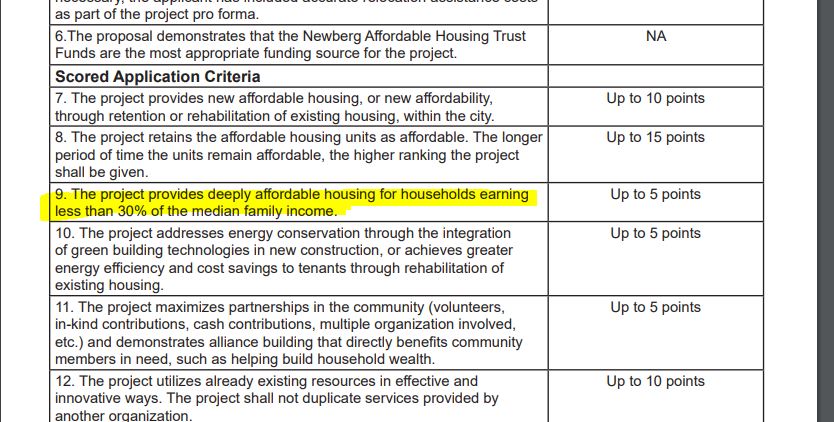
Together, the language used in the application means that any family that makes $74,500 or less annually is now considered “low income” by the City of Newberg, which means landlords who rent apartments at $2,000 a month can apply for and receive these loans, as can housing developers that sell homes for over a quarter of a million dollars.
One might at face value assume that the language is intended to mean people must make 30% (or less) of the median family income to qualify, but that is not how the language is written. It’s written to mean that 70% of the median family income qualifies as “low income”. That is what “less than 30% of X” means. Feel free to use a calculator if you like, here’s a free one.
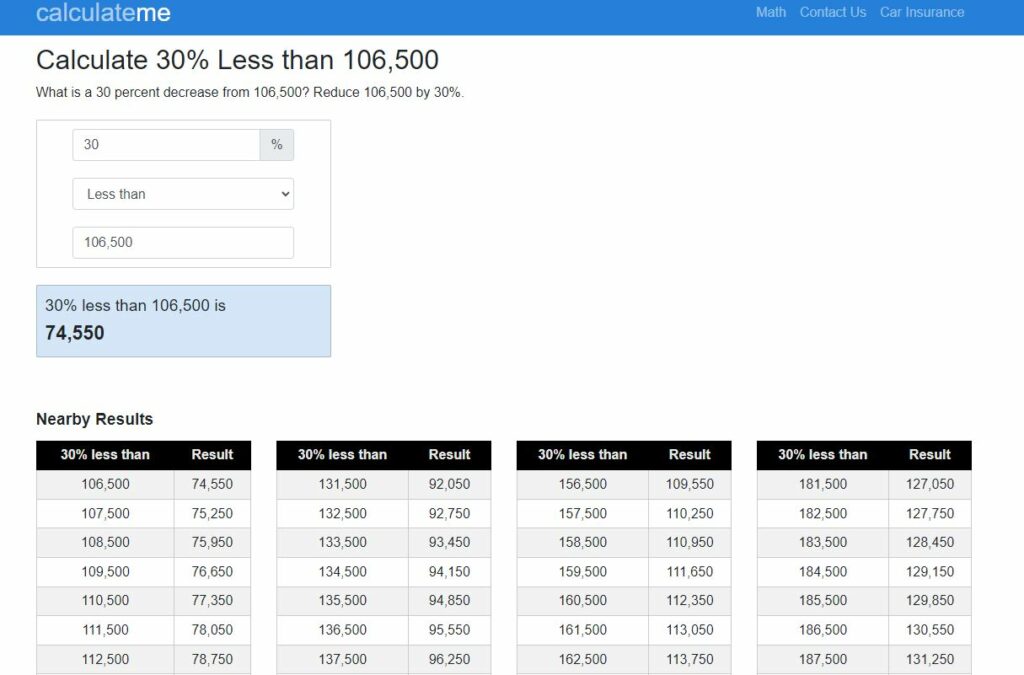
I believe these changes greatly benefit those who have special interests in obtaining these loans by making them significantly easier to acquire without having to help people who ordinarily would not be able to afford a home in Newberg.
It would appear that there is a lot of deception taking place here, because I and most other reasonable people would not regard those who are making over $70,000 a year annually as “low income”. This looks to me like a land developer hustle, with the City changing the definitions of words so that the average voter in Newberg does not realize they are able to sell homes for $250K+ like any other commercial developer in Newberg while classifying these homes as “affordable housing”. Most reasonable people consider low income families to be those making less than $25K a year and who without subsidization could not afford a home. The average person does not consider low income to be people are working good paying jobs at Nike and Intel, or have moved here from California.
As I mentioned in a previous article, the median income in Newberg is $56,910 per US Census data prior to 2022. The most recent US Census is claiming a significantly higher number and I find that to be rather peculiar jump. It wouldn’t surprise me if somehow the data was manipulated by targeting high income households for surveying but I have no proof for this at this time. According to the Affordable Housing Committee minutes, data from United States Department of Housing and Urban Development (HUD) 2021 numbers are being used by the City of Newberg Affordable Housing Commission for the median family income but I have not seen this documentation. Regardless, I believe no reasonable person would conclude that people making over $70,000 a year are in need of affordable housing subsidization, just as no reasonable person would think the average family in Newberg is making over six figures annually.
Who Controls the Affordable Housing Commission?
Since my last reporting about this commission, the list of people on Newberg’s Affordable Housing Commission seems to have been removed from the City of Newberg website but we can find a list by looking at the minutes for the last meeting, buried in the Calendar on the City website.
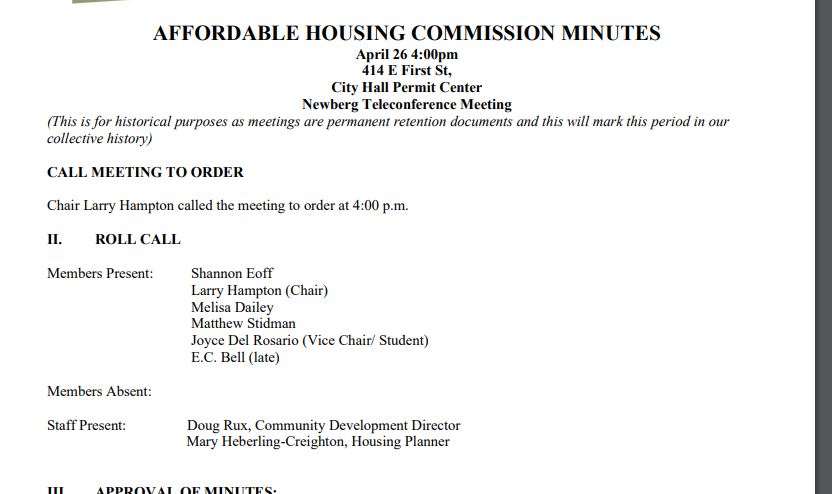
The Chair of the Commission is Larry Hampton, who along with Shannon Eoff, is on the Board of Directors for Newberg Habitat for Humanity, which Mayor Rick Rogers is the Executive Director of.
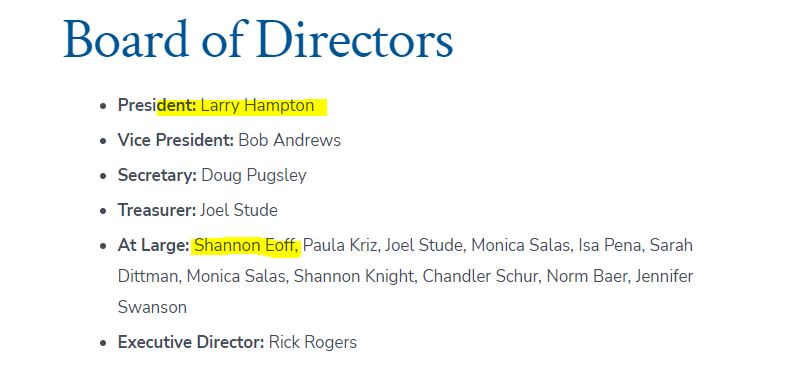
Furthermore, as I previously reported, Larry Hampton, Melissa Daily, and Shannon Eof are all members of Newberg Equity in Education (NEEd); the subchapter of Progressive Yamhill that harassed Newberg school board directors, etc.
Here is the proof,
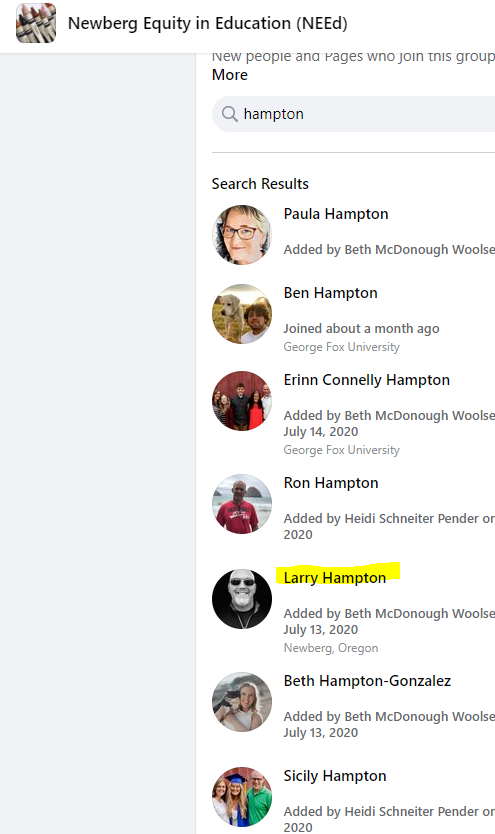
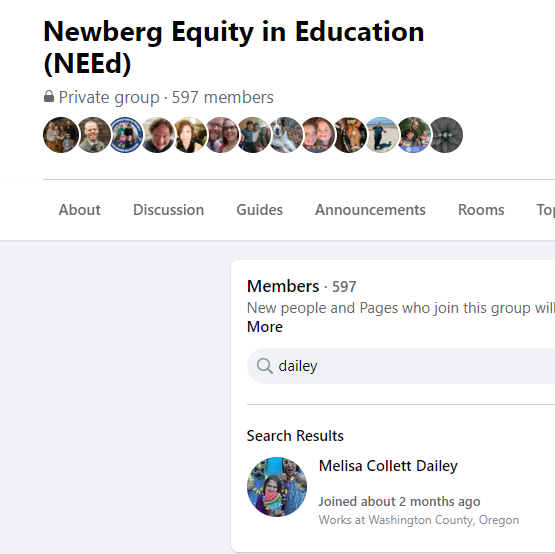
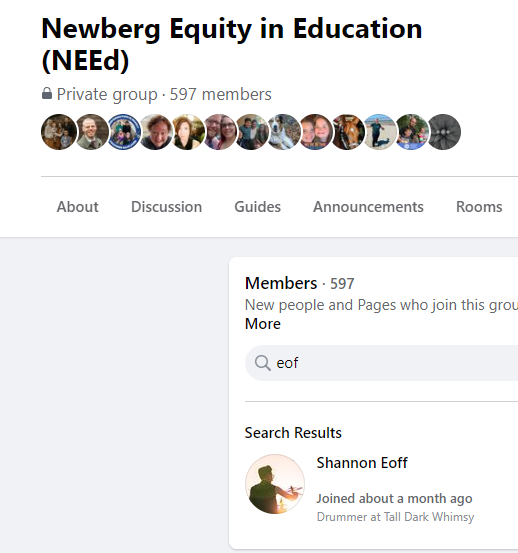
It does seem that Newberg Habitat for Humanity has in the past been a recipient of significant amounts of grant money from the City of Newberg. Here are a few pieces of evidence for this claim,
- Per the Newberg Graphic article City awards $10,000 grant to Habitat, in June 2017 Newberg Habitat for Humanity received a grant for repairing “low income housing”.
- Per the agenda packet for Newberg Affordable Housing Committee Meeting on Tuesday, January 25, 2022, a “time sensitive grant request” was provided by the City of Newberg to the Newberg Habitat for Humanity on August 16, 2021.
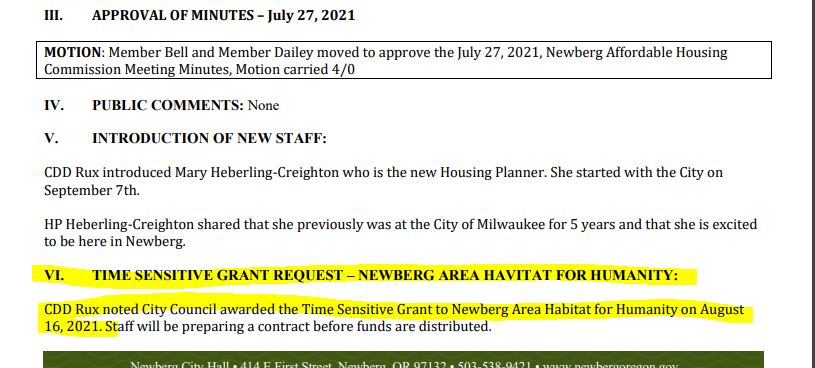
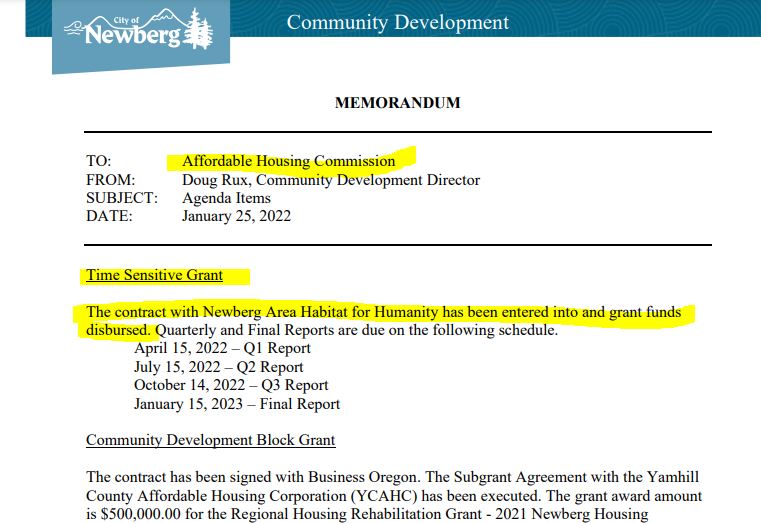
Remember now that Larry Hampton, the Chair of the the Affordable Housing Commission, is also the President of the Newberg Habitat for Humanity Board of Directors and Mayor Rick Rogers is the Executive Director. This is, in my opinion, highly unethical.
- According to a April 9, 2021 letter authored by Mayor Rick Rogers in his capacity as Executive Director of Newberg Habitat for Humanity, he acknowledges that Habitat for Humanity has built 138 homes that were sold to people who earn up to 80% of the median income; as prior to the recent changes the City of Newberg was claiming the average median family income was $96,000, this would mean they were constructing “affordable” homes for families who make as much as $76,800 annually.
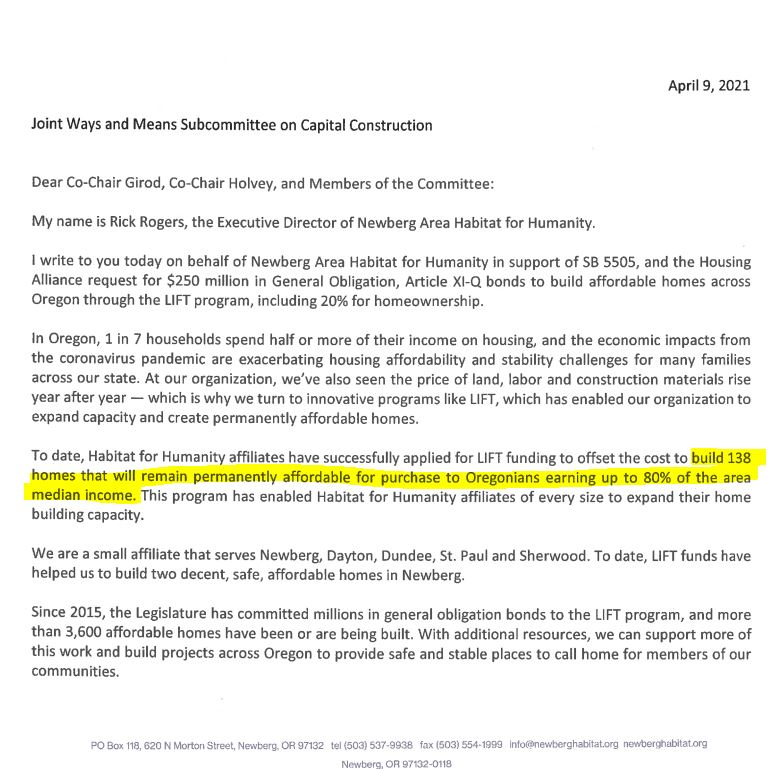
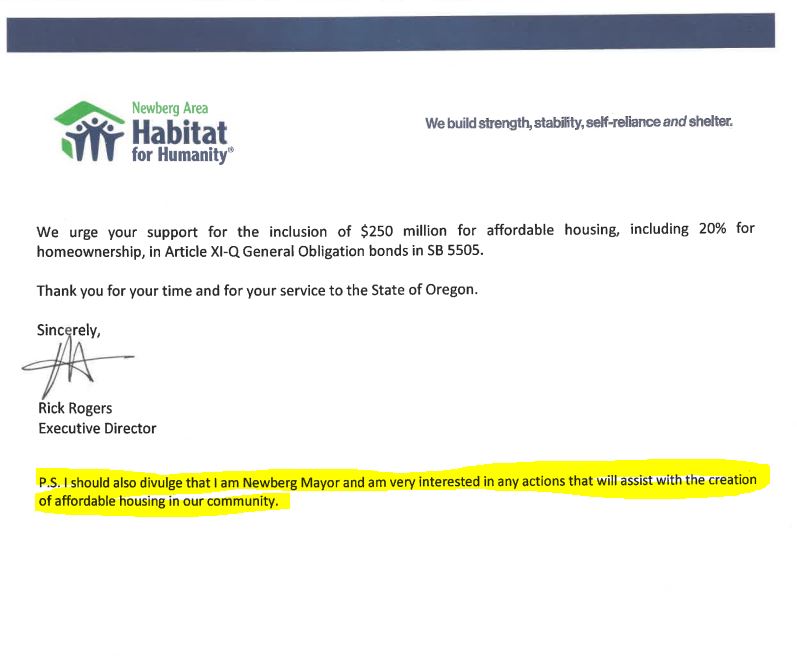
(I want to spotlight the final sentence of the letter, where Rick Rogers leverages his role as Mayor to help him add weight to his request for the passing of a law that would result in more grant money for his private company. I believe this may potentially be an Ethics violation under ORS 244.020, which I will discuss in more depth later in this article.)
- Recently the City of Newberg granted $400,000 of ARPA funds to North Valley Friends / Providence Hospital for the “Peace Trail Village” project. In the grant request, Newberg Habitat for Humanity is expressly mentioned as a partner in the project. So far it has not been disclosed how much of the ARPA money awarded to the project will be spent on services from Newberg Habitat for Humanity.

The Value of the Homes Built by Newberg Habitat for Humanity — Are They Really For “Low Income” People?
I was able to locate some data about the value of homes built by Newberg Habitat for Humanity that I believe supports my conclusions.
The October 28, 2020 article Building a Home published by the Newberg Graphic mentions a house built by Newberg Habitat for Humanity at 1205 E. Fifth St using a $130,000 grant from the Oregon Housing Community Services Division through a program called LIFT (Low-Income Fast Track). According to the article it was sold to two single women between the ages of 50 and 77. The public information concerning permitting is located here, which under the city code changed during Rogers’ tenure considers constructing a new home on a lot connected to another home as a minor modification so they could avoid paying fees for new construction, even though this new home is no longer going to be part of the original home and was sold separately from the original home.
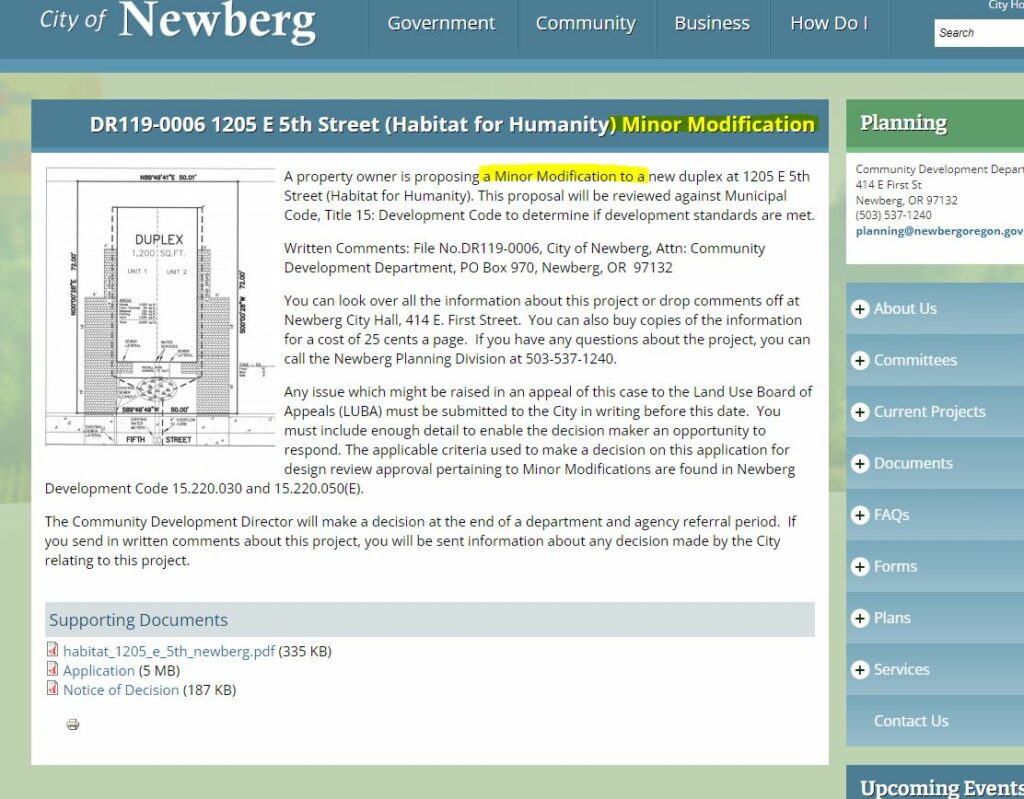
Zillow claims the house sold for $320,000.
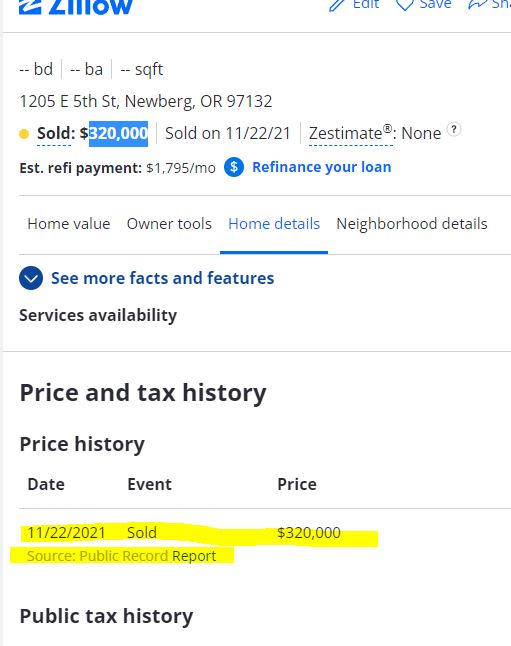
I have also confirmed this sale price through state records.
At a sale price of $320,000 I don’t see how this house was genuinely “affordable housing”, as it looks like the sale price of just about any other house in this part of town that would have been built by any other developer. I guess the difference would be that Newberg Habitat for Humanity gets to build its homes using government subsidization and volunteers providing free labor, but the houses are still sold to people who make far above what would be considered “low income” by the average person. Additionally, actual employees of Habitat for Humanity do draw salaries and can receive bonuses– salaries and bonuses that come from government subsidization.
Many people unfamiliar with Habitat for Humanity don’t realize that it is both a developer and a mortgage company, with the home buyers frequently paying their mortgage to Habitat for Humanity or some third party associated with them.
(As an aside, reading the proposal for the construction of the duplex that was submitted by Rick Rogers to the City he is the mayor of is quite a trip. )
Enormous Conflicts of Interest in City Council Regarding “Low Income Housing”
There is an extremely obvious conflict of interest taking place here; Rick Rogers who runs Newberg Habitat for Humanity is also Mayor of the City Council that approves decisions which benefit his company, such as awarding grants and loans to it directly and indirectly through others who use NHH’ services.
I find it interesting that the City led by Rogers, who has a vested interest in constructing more housing given his position at Newberg Habitat for Humanity, is pushing the Urban Renewal Plan so hard and all of these increases for low income housing funding while he is running a housing development company that benefits from these changes to Newberg. Couple this with fact they have raised the bar for what qualifies as “low income” to be a ridiculously high $74,500 annual income. That just isn’t the kind of income the average person would regard as “low income”, because it really is not.
As I previously demonstrated in a prior article, Progressive Yamhill / NEEd members are also stacked on the Newberg Urban Renewal Committee.
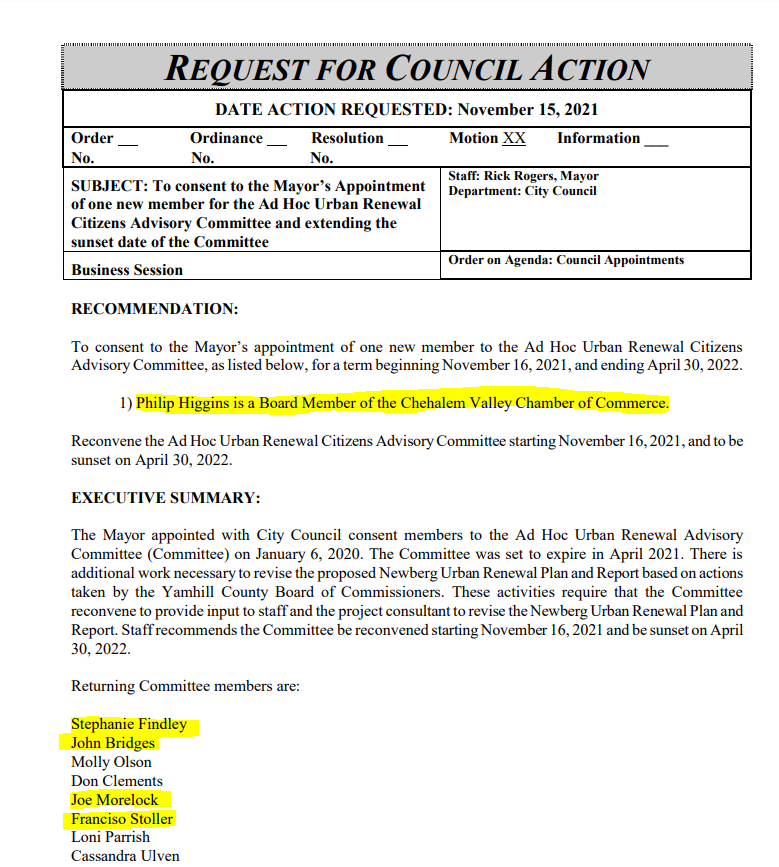
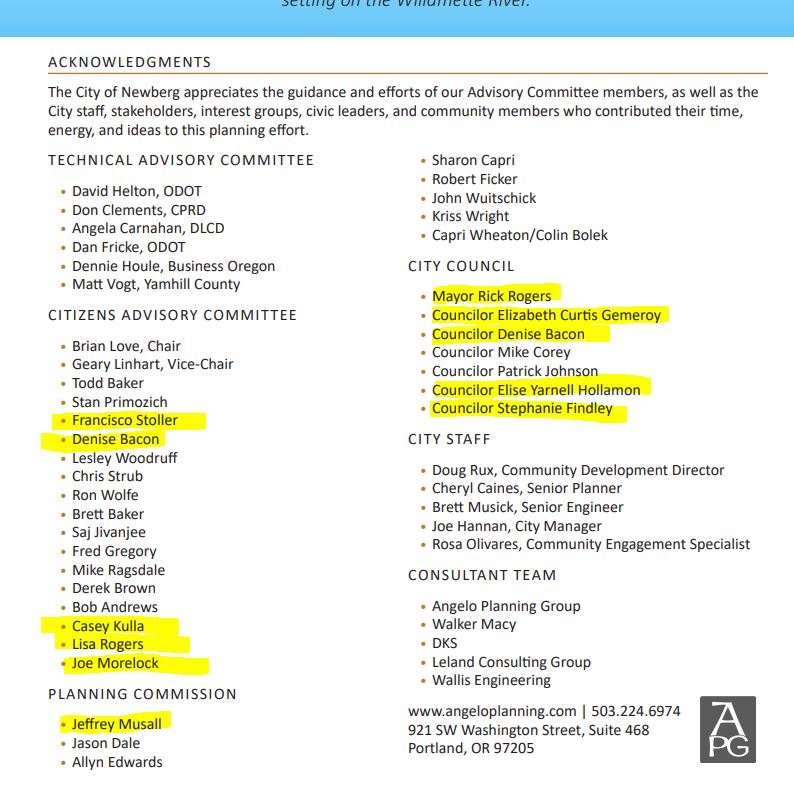
Furthermore, the way that the grant applications are drafted, it gives applicants more preference (“points”) if they partner with companies like Newberg Habitat for Humanity for things like repairs and improvements.
What Is Officer Compensation at Newberg Habitat for Humanity?
There are other questionable things about the finances of Newberg Habitat for Humanity that I want to bring to light.
Let’s review some of the publicly available financial information about Newberg Habitat for Humanity which I have been able to locate, such as its tax records. Here is the last five years of reporting.
- 2016 IRS Tax Returns
- 2017 IRS Tax Returns
- 2018 IRS Tax Returns
- 2019 IRS Tax Returns
- 2020 IRS Tax Returns
The 2019 Tax Returns claimed that Habitat for Humanity they paid $143,935 in salaries in 2018 and $130,987 in 2019.

According to the form they submitted for 2019, Rick Rogers received compensation of $38,383 for 24 hours, weekly, of work.
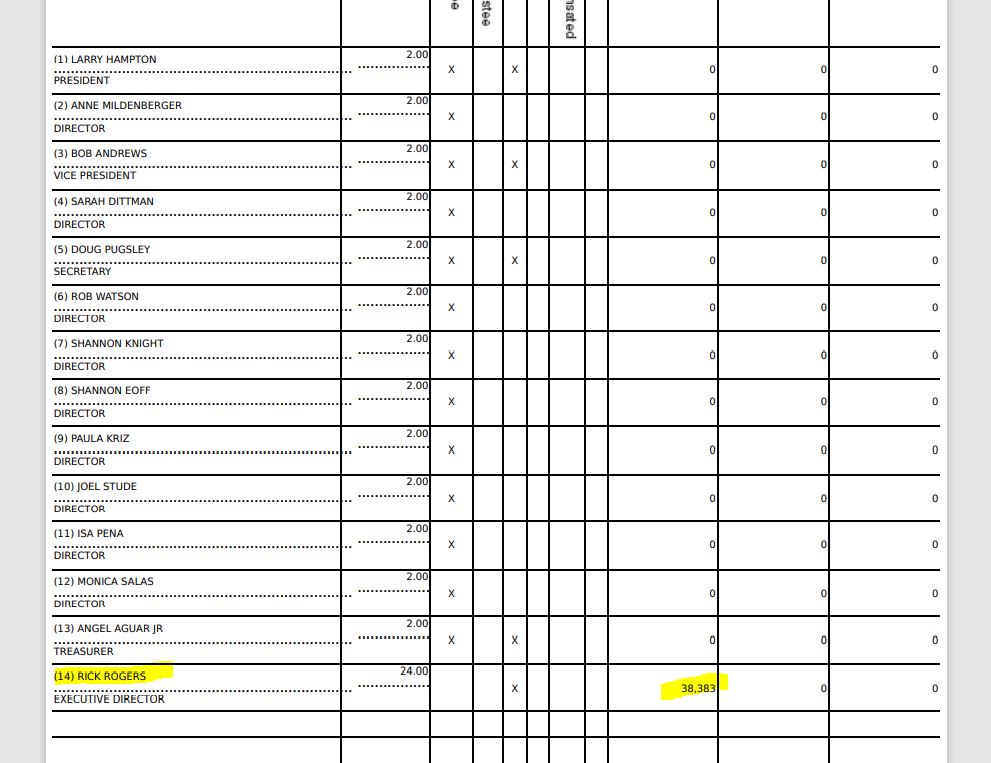
Now let’s look at the Newberg Habitat for Humanity’ 2020 tax filing to the IRS, which is the most recent tax filing I was able to locate.

On this form they claim Rick Rogers made nothing, and instead the Secretary Doug Puglsey made $42,708 a year for 2 hours of work a week. Meanwhile, Rick Rogers (who previously made at least something in that ball park) earned zero dollars for the entire year but still continued to work 24 hours a week. That….does not seem correct, and it would make more sense if the salary amount paid to Rick Rogers was instead listed for Puglsey for some reason.
Oddly, they do claim they paid over $120,000 in compensation and/or benefits during 2020 but they have not explained anywhere in this form I can see who received the other amount. All that is reported is the $42,708 which went to Rick Rogers or Puglsey.
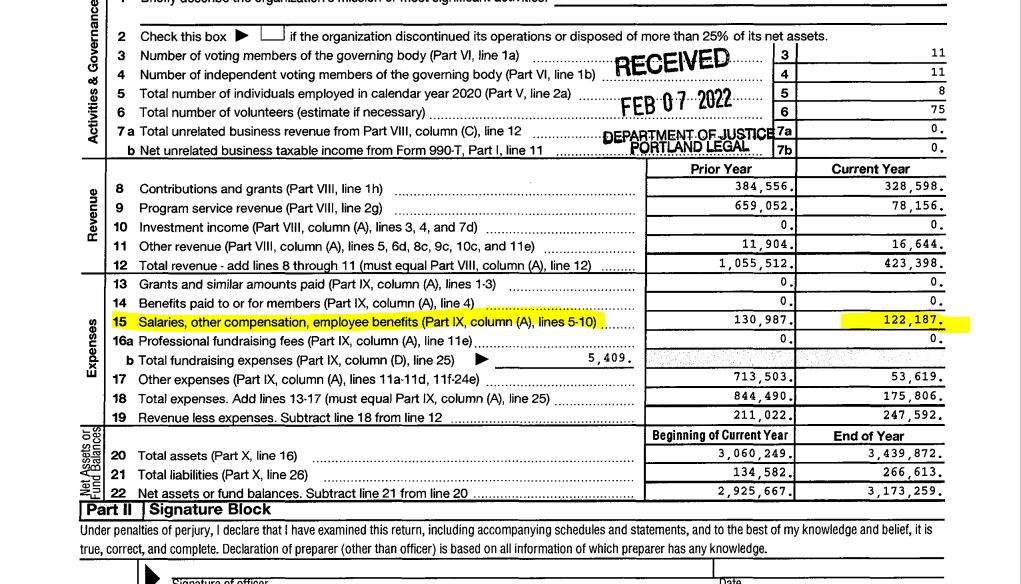
I think these irregularities are worth further investigation. I would very much like to see the W2s of everyone who received compensation from Newberg Habitat for Humanity for the past decade, as that would enlighten on who is getting all of this money and how much of it. Unfortunately W2s were not included in any of the filings I was able to obtain.
Another important detail I find to be extremely strange is that Rick Rogers purchased two homes in Newberg in 2017; one for $396,045 and another for $205,000. Both homes are on the same street, and it is my understanding one is rented out to vacationers.
However, according to the Newberg Habitat for Humanity IRS records, Rick Rogers only made $38,545 in 2016 and $37,729 in 2017.
How does someone making around $3,000 a month make $601,045 in real estate purchases in a single year? This is an answer I would very much like to know, however, Mayor Rick Rogers has refused to provide me any answers to these questions, as shown here in my communications with him,
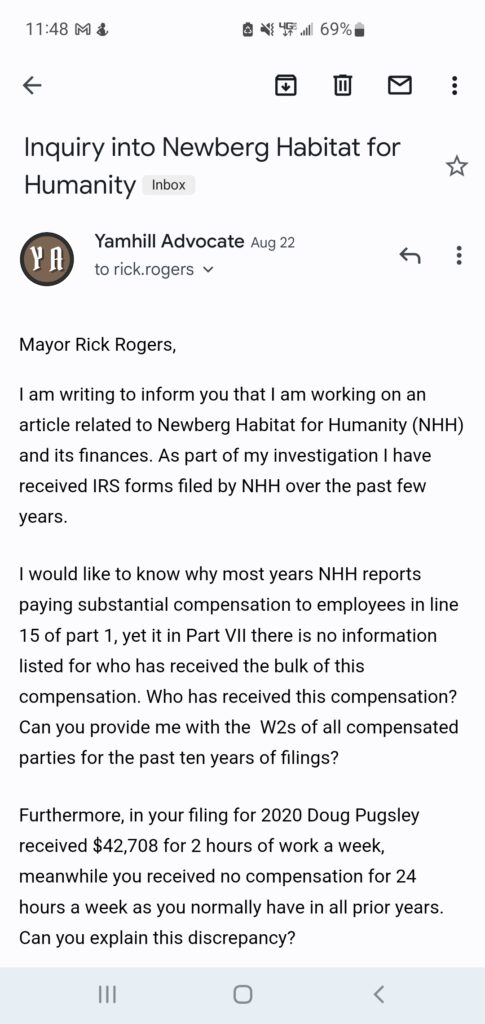
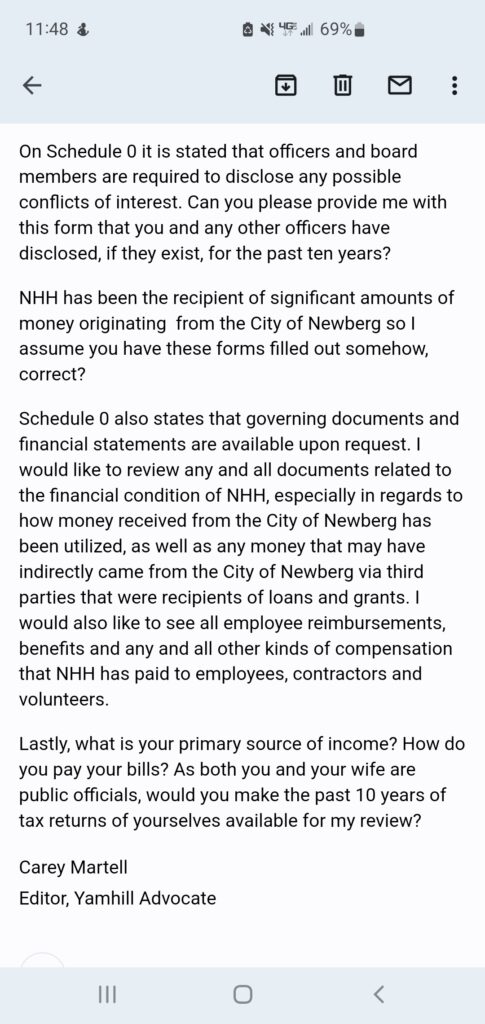
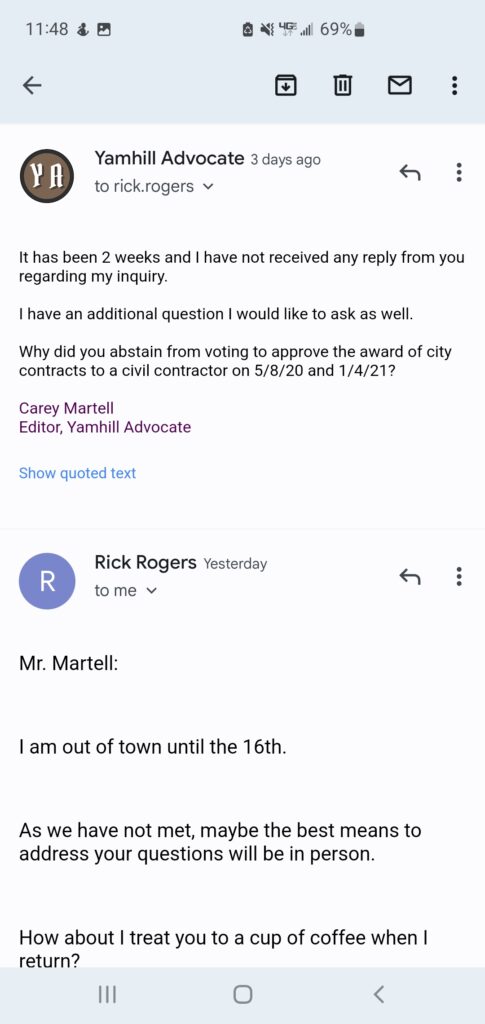
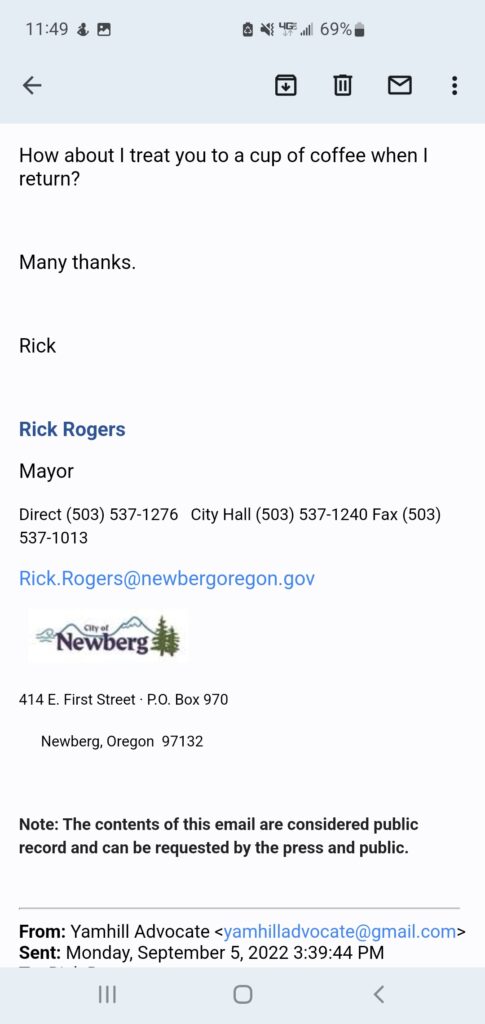
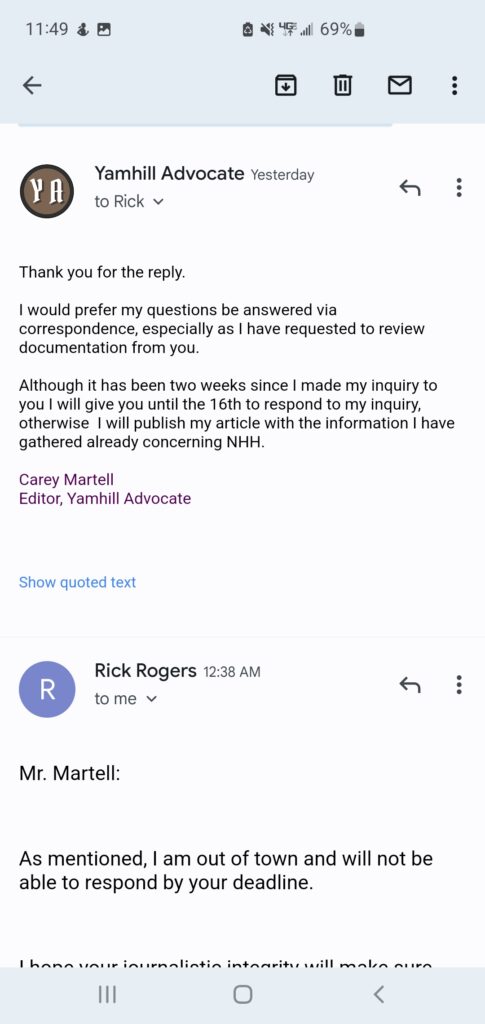
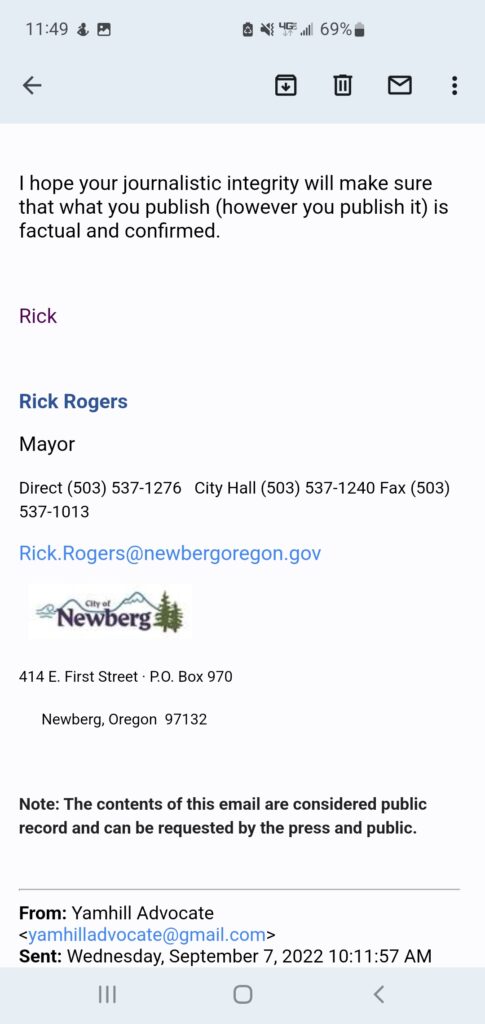
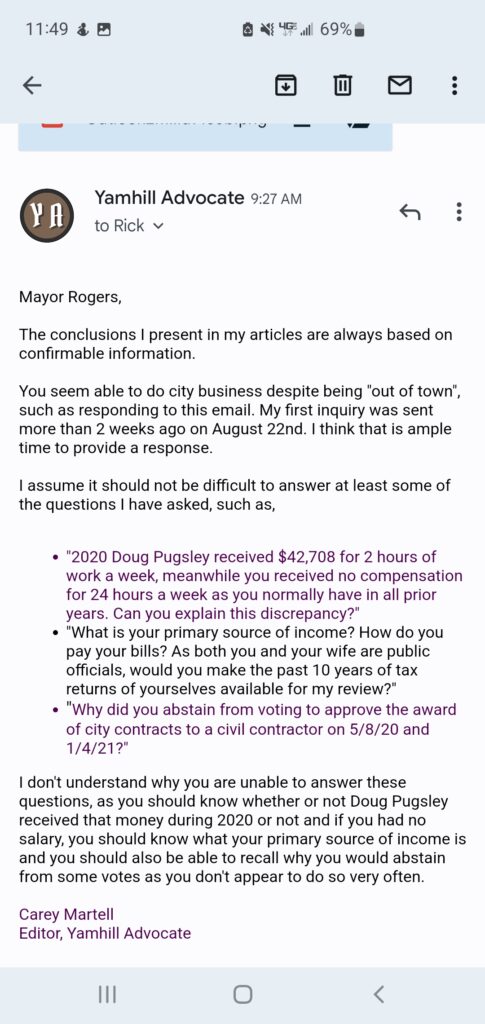
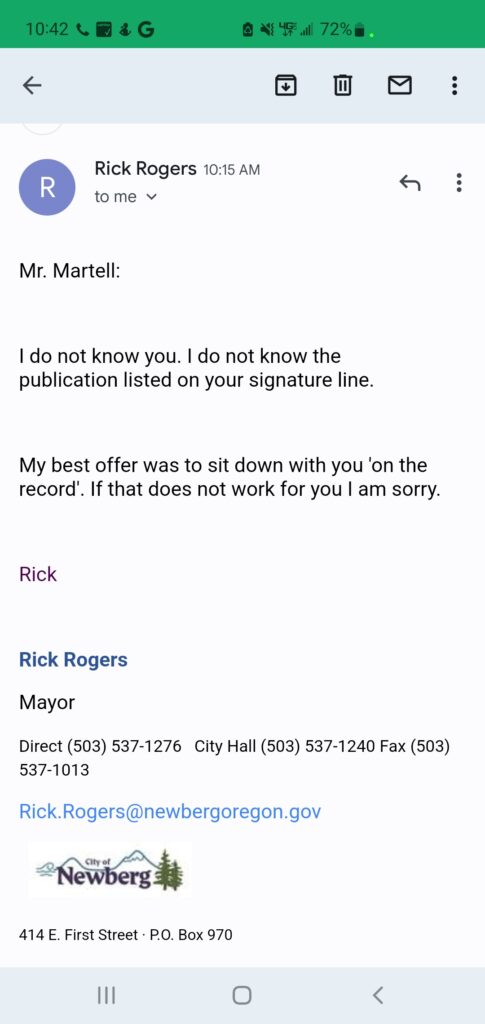
Ordinance Changes Make City Manager Able to Grant and Amend Contracts As Desired
I also want to mention that another interesting change was made to Newberg’s City Ordinances that I believe is worth mentioning, as I think it plays a role in this.
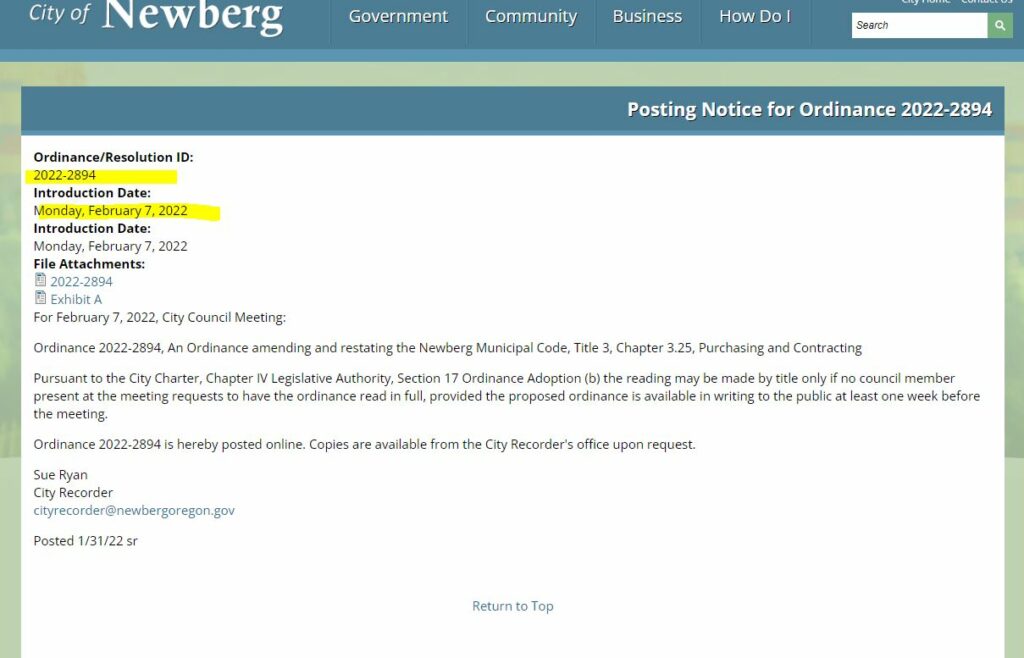
The changes, which you can read for yourself, permit the City Manager to award contracts up to $100,000 without requiring public comments or City Council review. The only way that the residents of Newberg will know how its money is being spent is by conducting public record requests for specific transactions, which ordinary residents will not be able to know to ask about in the first place.
How I Believe The Scheme Is Working
When all of this information is considered, I believe there is quite the little scheme going on here once you start piecing the puzzle together;
It appears that members of this political group (Progressive Yamhill) have banded together to provide financial assistance to one another’s businesses using the City of Newberg. The way this scheme might work is as follows;
- The Progressive Yamhill members on Newberg City Council provide grant money to Progressive Yamhill members’ businesses (as demonstrated by the distribution of ARPA funds).
- City Council members appoint Progressive Yamhill members to key positions on committees that draft proposals for changes to the city code and budget which promote the construction of things that may benefit their private interests, such as “low income housing” (an example is permitting “Middle housing” and tiny homes to be built in historical parts of Newberg). These PY members use their positions on committees to champion city changes that allow for other PY members to profit. (The obvious example here is the benefit to Rick Rogers and his Newberg Habitat for Humanity — to be able to build more homes categorized as “low income” in the expanded Urban Renewal Growth boundaries. But in reality, they don’t need to be low income by the standards most people would use, as these homes can sell for over $300,000 to people who make as much as $74K a year. While Habitat for Humanity can claim the homes are sold at “no cost”, the reality is what is defined as “no cost” is a matter of subjective opinion and creative accounting.)
- Newberg City Council passed the Construction Excise Tax on all construction that is done by developers who don’t work with partners like Newberg Habitat for Humanity; if they aren’t constructing the pseudo-“low income housing” with Habitat, they get an extra construction tax and then that tax money is redirected to Newberg Habitat for Humanity and other developers making the pseudo-“low income housing”. This helps Habitat for Humanity monopolize some of the housing development in Newberg.
- The Progressive Yamhill controlled Newberg City Council passed the Urban Renewal Plan. This plan greatly expanded the urban growth boundary of Newberg city limits and rezones land for residential construction. An example being the ‘Riverfront Master Plan’. This benefits their scheme, as it means they can loan or grant more City money to their own companies for the development that occurs in this new boundary zone. At this time I believe this is their primary motivation for pushing forth the Urban Renewal Plan. There is no profit for them in having commercial development that brings new employers to Newberg, as they cannot construct commercial properties through groups like Habitat.
- Other Progressive Yamhill members can start projects like Peace Trail Village to invite genuinely low income people to Newberg — homeless drug addicts — and grant money can be distributed to them as well, for villages that Progressive Yamhill members’ companies (like Habitat for Humanity) are involved in the construction and servicing of. The grant money can — and has — been allotted toward the paying of salaries to people managing places like Peace Trail Village — jobs that otherwise would not exist without this public subsidization.
- The City Manager, who is hired by and serves at the pleasure of the City Council, can now spend up to $100,000 per contract, hiring or purchasing goods / services from whoever he wants without any public or council review. This change makes it easier to obscure the financial connections between parties. The current City Manager is Will Worthey, who is aligned with Progressive Yamhill’s agenda, which I believe is why he refused to remove hardcore gay pornographic books from the Newberg City Library, as I reported about last March.
I believe this is the general outline of how the ‘scheme’ is working and I believe this based on the obvious conflicts of interest that exist between people awarding public money and people receiving that money, as well as by seeing the plainly obvious way that certain parties benefit from changes made to City codes and programs like its Affordable Housing programs that appear to me to be tailored to benefit the mayor’s nonprofit, Newberg Habitat for Humanity and others associated with it.
Given these obvious connections to the people distributing grant money and those receiving grant money, I believe that the City of Newberg should have an independent audit conducted on it. I believe audits should also be conducted on all the recipients of grant money and contracts awarded since Rick Rogers became mayor, with the audit performed by a third party examiner who specializes in embezzlement and fraud.
I believe I have shown evidence that there is sufficient conflicts of interest between the people who are giving public money and receiving that money to warrant such an investigation. I find it alarming that none of these conflicts of interests have been disclosed to the residents of the City whose tax money is funding all of this enrichment of Progressive Yamhill members’ enterprises, and whose city administration is catering toward certain businesses associated with them.
Normally, when a politician has these kinds of conflicts of interests such as being an officer of a company that relies heavily on public money they would resign from that position when taking public office. Rogers and Hampton have not done this and I view this as a huge red flag.
Potential Oregon Government Ethics Law Violations
Oregon law prohibits public officials from using or attempting to use their official positions or offices to obtain a financial benefit for themselves, relatives or businesses which they are associated with if that financial benefit or opportunity for financial gain would not otherwise be available but for the position or office held.
In fact, the Public Official Handbook produced by the State of Oregon expressly uses the example of a paid employee of a non-profit when discussing this ethics violation of ORS 244.020,
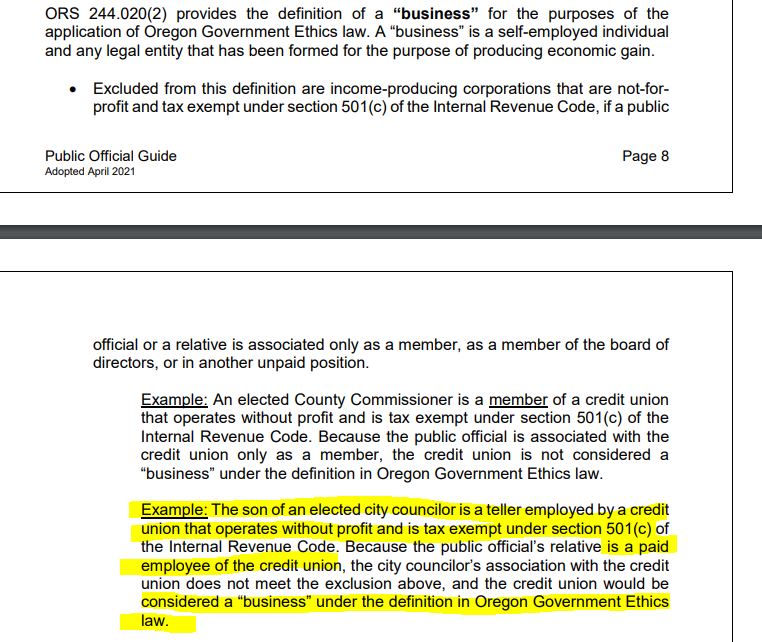
The fact of the matter is these City programs and code changes that benefit Newberg Habitat for Humanity were started after Rick Rogers became Mayor of Newberg in 2018. Rick Rogers has led the charge on low income housing programs and changes that benefit himself and his business, Newberg Habitat for Humanity. Likewise Larry Hampton, who is the Chairman of the Affordable Housing Commission, has been complicit in this for the same reason, as he is the President of the Board of Directors for Newberg Habitat for Humanity. As Chair he has proposed things that benefit the private company he is associated with, and this is incredibly unethical.
I believe the activities of Newberg City Council over the past several years related to low income housing programs and the Urban Renewal Project are designed to enrich Newberg Habitat for Humanity, which Mayor Rick Rogers is the Executive Director of. The weight of the evidence I have shown leads me to this conclusion.
Considering all of the information I have published about these matters, I believe there is sufficient evidence for an investigation into the enrichment of Habitat for Humanity and other associates businesses of Progressive Yamhill members that have become the recipients of grants, loans and other funding from the City of Newberg.
And if it’s not illegal for a Mayor to spearhead changes to a City’s zoning codes, urban renewal growth boundaries and grant programs that permit it to provide more opportunities for his own business, it sure as hell ought to be.
If anyone has any information or tips related to this, please feel free to provide them to the Advocate by contacting us.
There is some additional information I also want to share concerning Rick Rogers tenure as mayor of Newberg, but it will be in its own dedicated article. Please click here to read the next article, Campaign Donor to Newberg Mayor Received Significant City Contracts During His Term.
Update: Please read the next article, City Committee Recommends Land Bank Program That Would Enrich Mayor Rick Rogers’ Newberg Habitat for Humanity for further proof that they have indeed updated the “low income household” definition to $77,500 a year.





Carey: Are you providing this information to the Attorney General for the State of Oregon?
Links to this article have been sent to the Yamhill County District Attorney’s Office for their review.